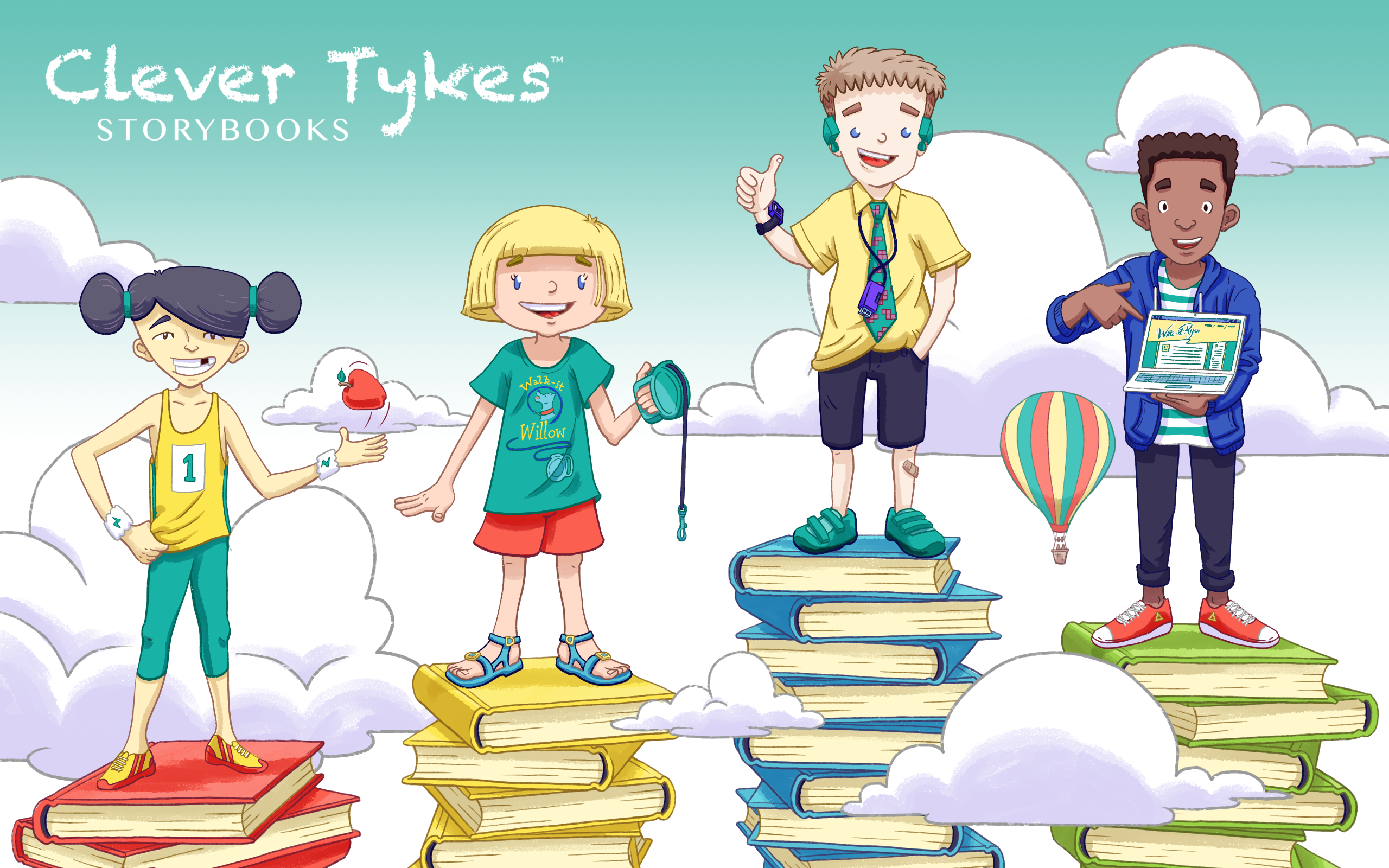Clever Tykes desktop backgrounds
We've had such great feedback from primary schools on our digital enterprise portal with storybooks, teaching resources and lesson plans for KS2 PSHE and citizenship, we thought we'd celebrate by creating some desktop backgrounds that teachers, students and parents can use! Choose your favourite, click on...






